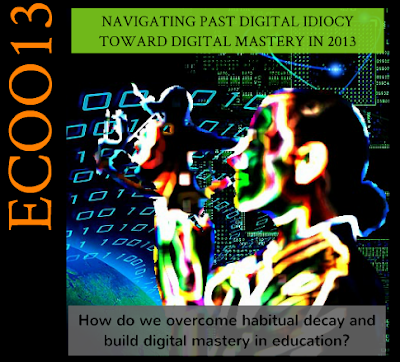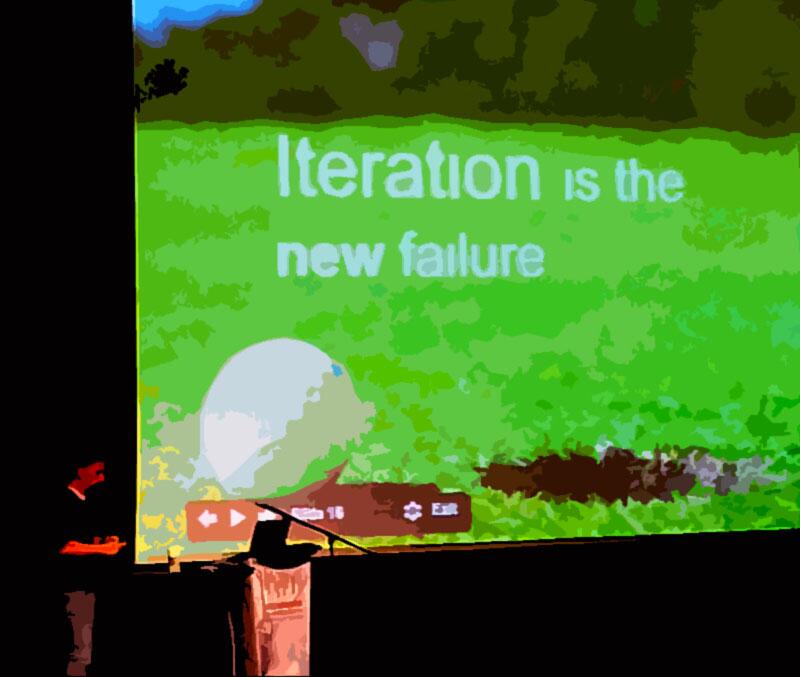I may have been a bit curt, but this is an essential truth of our age: information is at hand. If you think education is about imparting information you're about to become quite redundant. Education isn't redundant, it's more important than ever to prepare students for information that is no longer vetted by the forth estate for them. Unfortunately this isn't a focus in education where bells still signal the start of
Digital access to information greatly emphasizes how out of touch the sage on the stage is nowadays. The teacher who talks for an hour straight giving their students facts has failed to realize that we no longer live in an information poor world. Instead of letting students access information pouring out of the technology that surrounds them, the sage teacher puts themselves in the middle of the class and drips information on them slowly, like water torture.
Assuming we have connectivity, something school boards aren't very good at because they were never meant to be internet service providers (yet have taken on this task poorly), and assuming the people in the room have developed some degree of digital mastery, then information will fall to hand. Waiting for it to drip, drip, drip out of a teacher's mouth or out of a static, out of date textbook shows a startling lack of awareness in how the world works nowadays.
The opportunity to collaborate and support each other is continuously available and learning reverts to the self-directed and driven activity it was before we institutionalized it. Questions of engagement quickly become irrelevant in a world where teachers aren't vital because of facts they know. Those sages are going to have to find other ways to pamper their egos. If they aren't expert learners themselves they will quickly find that they have no skill to share with students, and if you have no skills to teach you don't serve much purpose in a world where any fact is a few keystrokes away.
There was a time when you needed a teacher to show you the way into hard to find information. Nowadays a good high speed internet connection has that information at your fingertips, assuming you know how to use it. Many teachers are still trying to be a font of information, even as the information revolution passes them by. The real losers in this aren't the teachers struggling to keep things the way they were, but the students we're graduating who have no idea how different the world on the other side of school actually is.






















